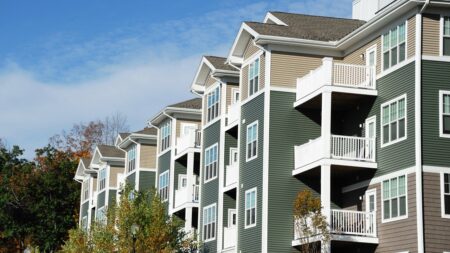U.S. mortgage rates rose for the third week in a row, on the back of expectations that the Federal Reserve will hold interest rates steady until the spring.
The 30-year fixed-rate mortgage rose and averaged 6.9% as of February 22, according to data released by Freddie Mac
FMCC,
on Thursday.
It’s up 13 basis points from the previous week — one basis point is equal to one hundredth of a percentage point.
Mortgage rates were last at this level in mid-December, and that was when rates fell for the first time below 7% since August 2023.
A year ago, the 30-year was averaging at 6.5%.
The average rate on the 15-year mortgage was 6.29%, up from 6.12% last week. The 15-year was at 5.76% a year ago.
Freddie Mac’s weekly report on mortgage rates is based on thousands of applications received from lenders across the country that are submitted to Freddie Mac when a borrower applies for a mortgage.
Separate data by Mortgage News Daily said that the 30-year fixed-rate mortgage was averaging at 7.14% as of Thursday afternoon. The Mortgage Bankers Association’s survey noted that the 30-year was at 7.06% as of February 16.
What Freddie Mac said: “Historically, the combination of a vibrant economy and modestly higher rates did not meaningfully impact the housing market,” Sam Khater, chief economist at Freddie Mac, said in a statement.
But “the current cycle is different [from] historical norms,” he added, “as housing affordability is so low that good economic news equates to bad news for homebuyers, who are sensitive to even minor shifts in affordability.”
What are they saying? “Buyer demand remains strong, but these higher mortgage rates are going to make it harder, particularly for first-time homebuyers who do not have equity to roll into the purchase of a home,” Lisa Sturtevant, chief economist at Bright MLS, said in a statement.
“The higher rates we’re seeing now [are likely] going to lead more prospective buyers to sit out the market and wait for rates to come down,” she added. “In some markets, particularly in high-cost, coastal markets, we may be hitting an affordability ceiling which will lead to a softening in prices.
Read the full article here












